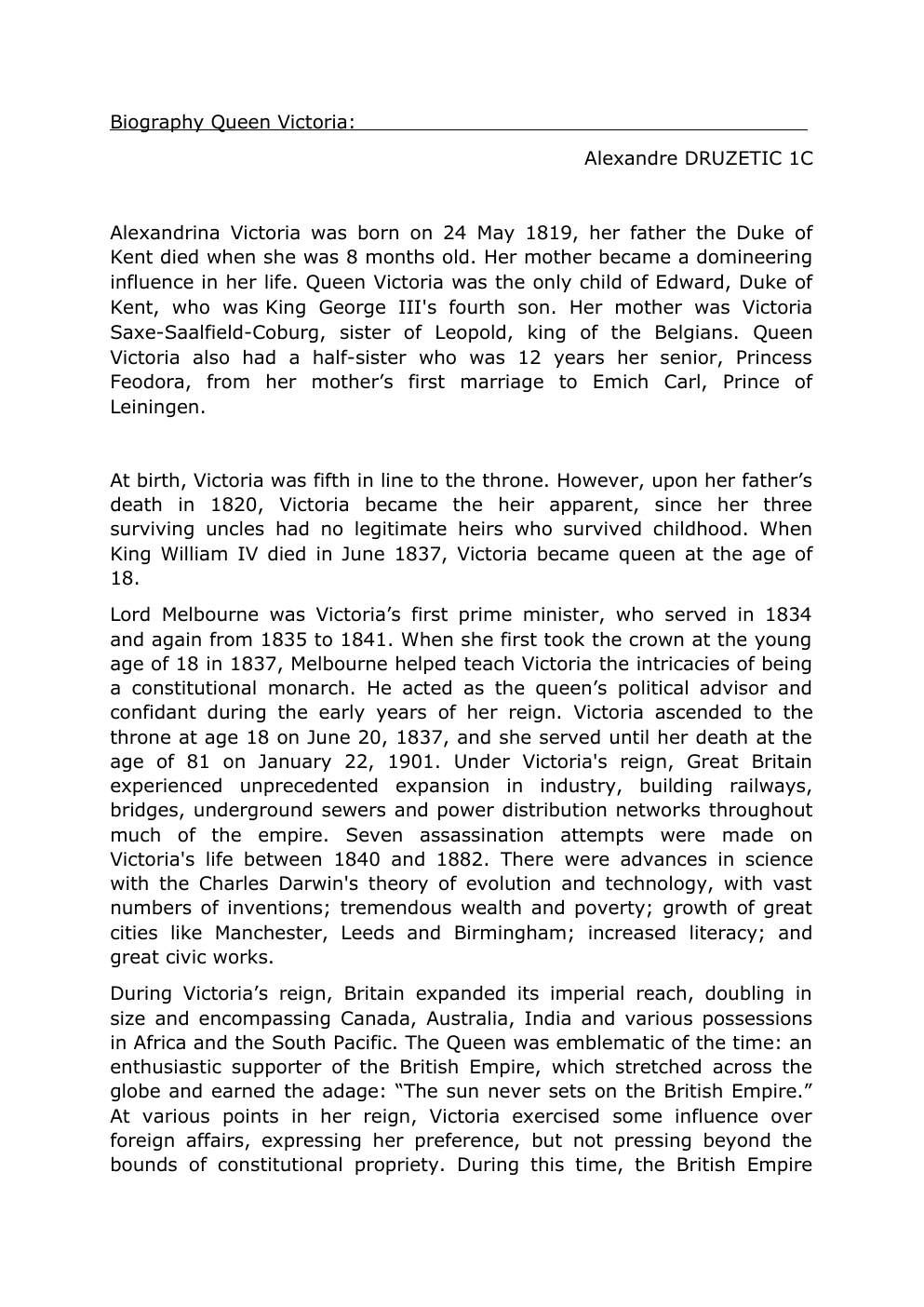Biography Queen Victoria
Publié le 14/05/2023
Extrait du document
«
Biography Queen Victoria:
Alexandrina Victoria was born on 24 May 1819, her father the Duke of
Kent died when she was 8 months old.
Her mother became a domineering
influence in her life.
Queen Victoria was the only child of Edward, Duke of
Kent, who was King George III's fourth son.
Her mother was Victoria
Saxe-Saalfield-Coburg, sister of Leopold, king of the Belgians.
Queen
Victoria also had a half-sister who was 12 years her senior, Princess
Feodora, from her mother’s first marriage to Emich Carl, Prince of
Leiningen.
At birth, Victoria was fifth in line to the throne.
However, upon her father’s
death in 1820, Victoria became the heir apparent, since her three
surviving uncles had no legitimate heirs who survived childhood.
When
King William IV died in June 1837, Victoria became queen at the age of
18.
Lord Melbourne was Victoria’s first prime minister, who served in 1834
and again from 1835 to 1841.
When she first took the crown at the young
age of 18 in 1837, Melbourne helped teach Victoria the intricacies of being
a constitutional monarch.
He acted as the queen’s political advisor and
confidant during the early years of her reign.
Victoria ascended to the
throne at age 18 on June 20, 1837, and she served until her death at the
age of 81 on January 22, 1901.
Under Victoria's reign, Great Britain
experienced unprecedented expansion in industry, building railways,
bridges, underground sewers and power distribution networks throughout
much of the empire.
Seven assassination attempts were made on
Victoria's life between 1840 and 1882.
There were advances in science
with the Charles Darwin's theory of evolution and technology, with vast
numbers of inventions; tremendous wealth and poverty; growth of great
cities like Manchester, Leeds and Birmingham; increased literacy; and
great civic works.
During Victoria’s reign, Britain expanded its imperial reach, doubling in
size and encompassing Canada, Australia, India and various possessions
in Africa and the South Pacific.
The Queen was emblematic of the time: an
enthusiastic supporter of the British Empire, which stretched across the
globe and earned the adage: “The sun never sets on the British Empire.”
At various points in her reign, Victoria exercised some influence over
foreign affairs, expressing her preference, but not pressing beyond the
bounds of constitutional propriety.
During this time, the British Empire
experienced only a few small wars, exerting its authority over foreign
possessions.
One of the major factors that helped Britain avoid European
entanglements was the marriage of Victoria's children: either directly or
by marriage,....
»
↓↓↓ APERÇU DU DOCUMENT ↓↓↓

































